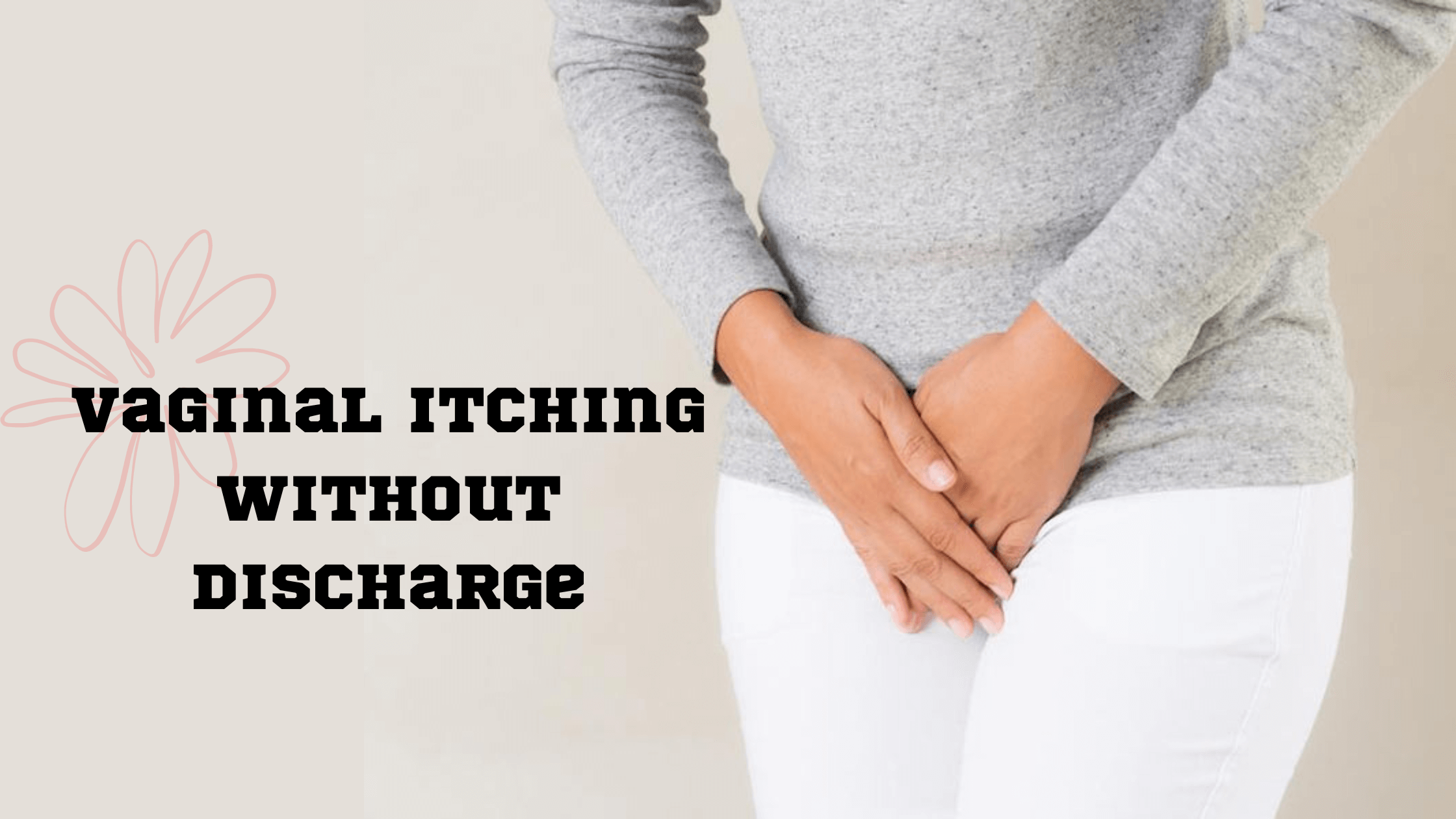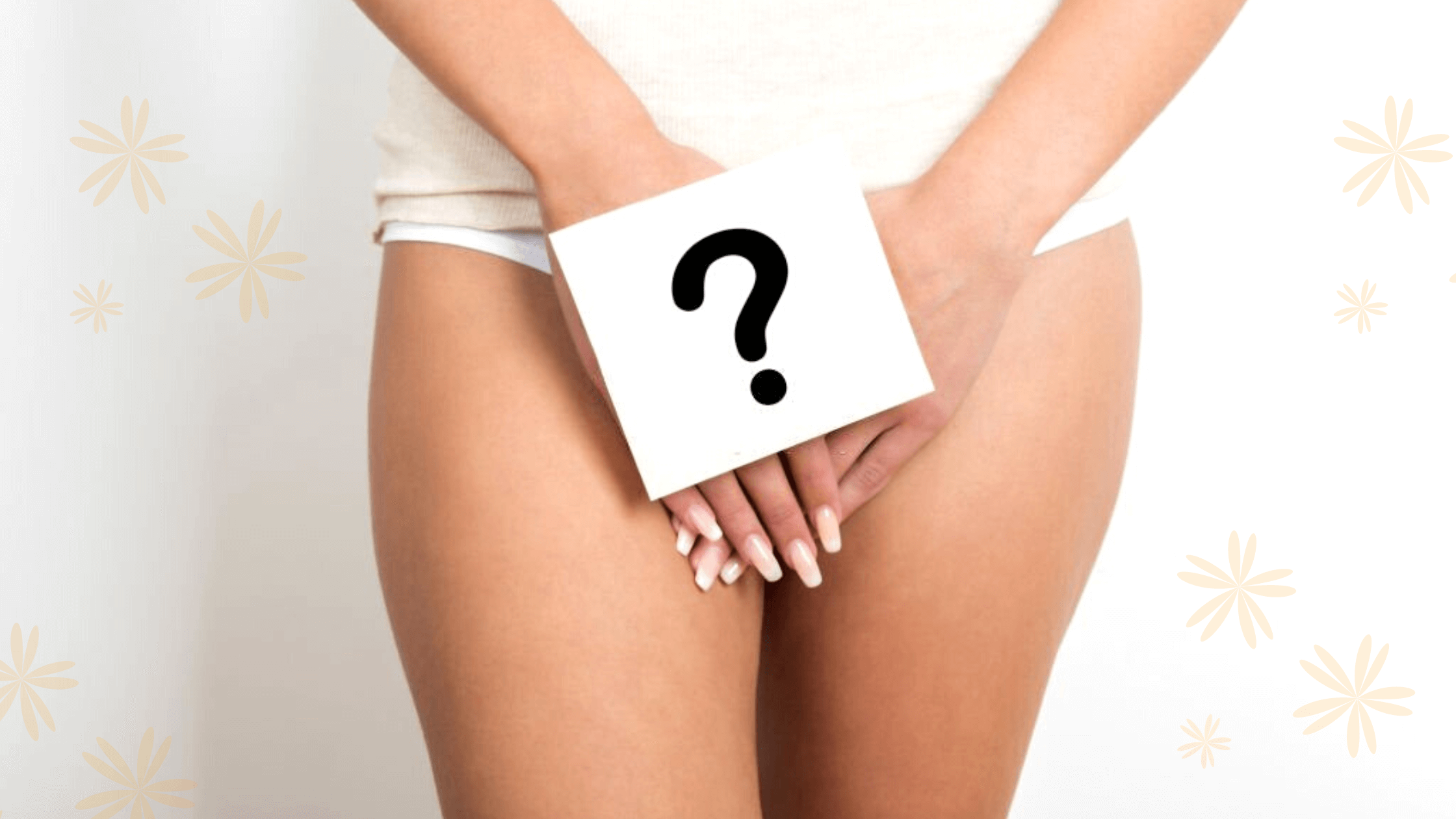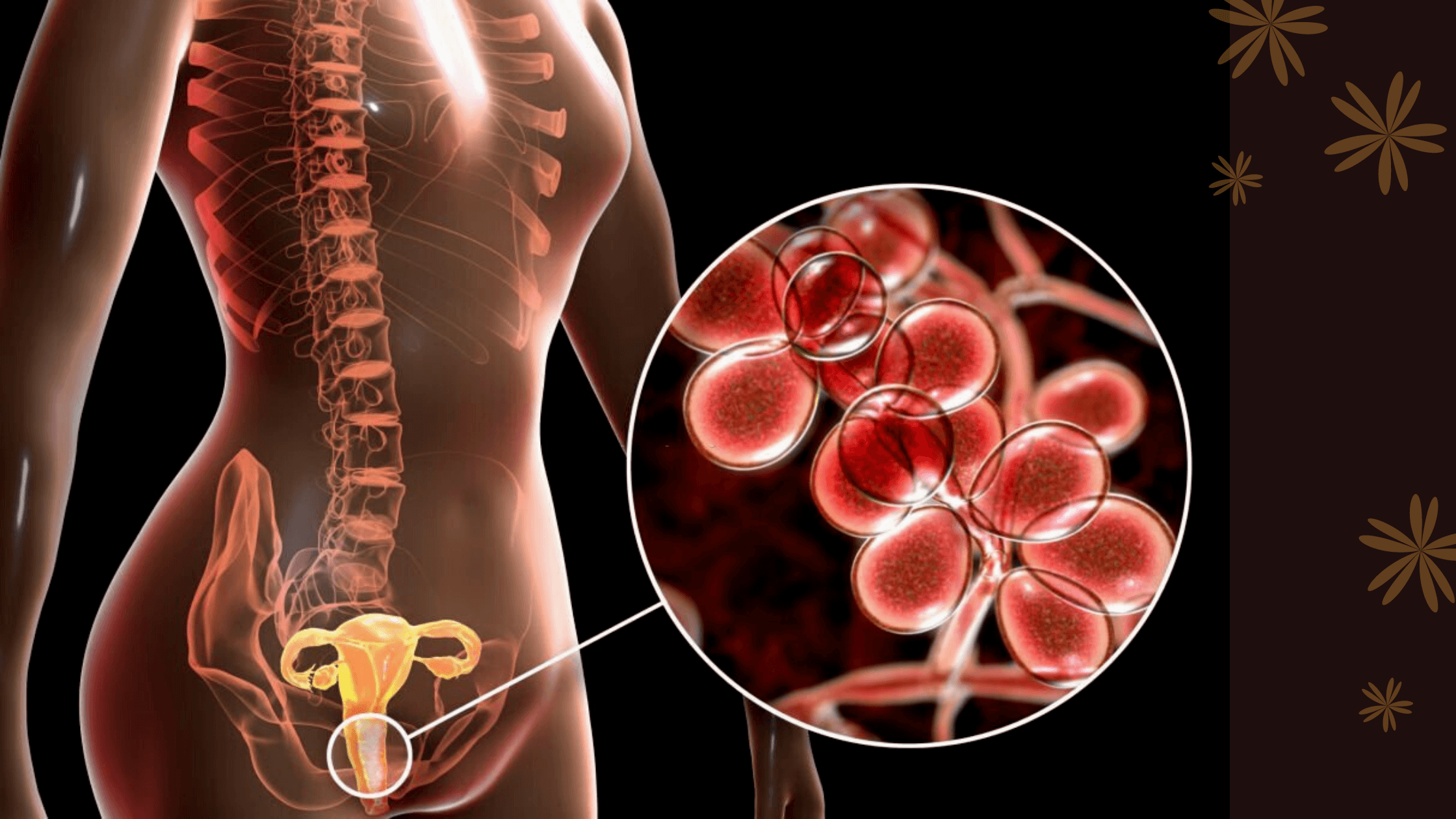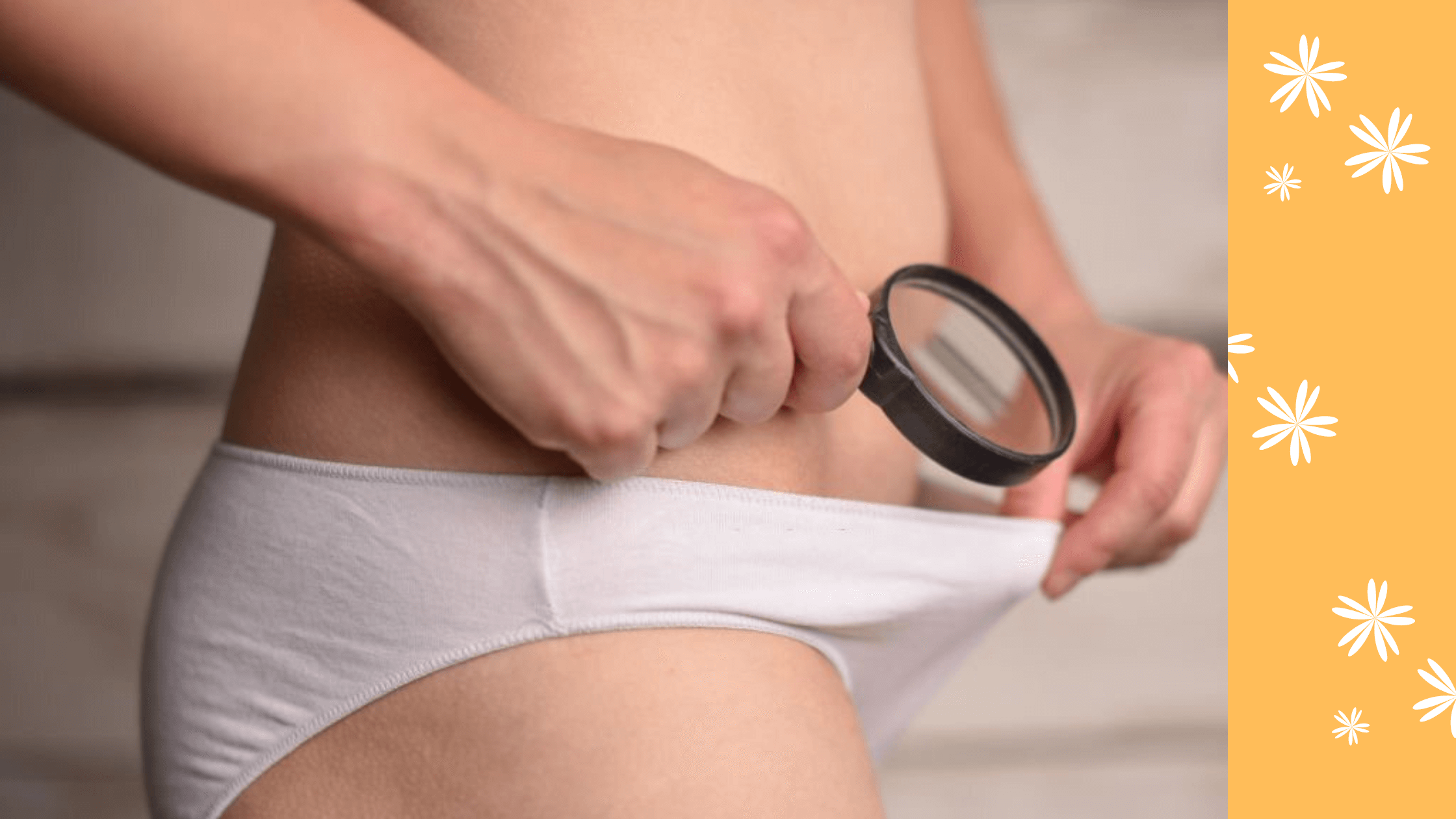Health
Vaginal Itching Without Discharge – Causes, Expert Advice & Prevention!

If you experience vaginal itching without discharge, you may be wondering what the cause could be. There are a few different things that could be causing this issue, and it’s important to identify the root of the problem in order to find relief.
In this article, we will explore the possible causes of vaginal itching without discharge and how you can prevent it from happening. From fungal infections to allergies and more, read on to learn more about this annoying but common issue.
What is vaginal itching?
Vaginal itching can be a very uncomfortable and frustrating experience. It can be caused by a number of different things, ranging from infections to allergies. In some cases, it may even be a sign of something more serious.
Vaginal itching without discharge can have many different causes. It may be caused by an allergic reaction, a yeast infection, or another type of infection. It can also be caused by certain medical conditions, such as diabetes or psoriasis.
If you are experiencing vaginal itching without discharge, it is important to see your doctor to determine the cause. Allergic reactions and infections can usually be treated with medication. However, suppose the itching is caused by a medical condition. In that case, your doctor will work with you to develop a treatment plan.

There are also some things you can do at home to help relieve vaginal itching. This includes keeping the area clean and dry, wearing loose-fitting clothing, and avoiding irritants like douches and scented soaps. If the itching is severe, you may also want to try an over-the-counter anti-itch cream or lotion.
Should I see a doctor for vaginal itching?
If you’re experiencing vaginal itching, you may be wondering whether or not you should see a doctor. The answer to this query relies on a few aspects. First, how severe is the itching? If the itching is mild and isn’t accompanied by any other symptoms, it’s likely that you don’t need to see a doctor. However, suppose the itching is severe or is accompanied by other symptoms like burning, redness, or discharge. In that case, it’s a good idea to make an appointment with your gynecologist.
Another factor to consider is how long you’ve been experiencing vaginal itching. If it’s a recent development, it’s possible that it’s due to something as simple as a new laundry detergent or soap that you’re using. In this case, switching products may be all you need to do to get rid of the problem. However, suppose the vaginal itching has been going on for a while. In that case, it’s more likely that there’s an underlying issue that needs to be addressed.
Finally, consider your overall health. Suppose you’re generally healthy and have no other medical conditions. In that case, it’s probably safe to wait a little while before seeing a doctor about your vaginal itchiness. However, suppose you have another medical condition like diabetes or are pregnant. In that case, it’s best to err on the side of caution and make an appointment with your gynecologist right away.

The common causes of vaginal itching without discharge
There are a number of possible causes for vaginal itching without discharge. Some of the most common include:
- Allergies: Allergic reactions to products, such as soaps, detergents, or fabric softeners, can often cause vaginal itching. If you suspect an allergy, try switching to a hypoallergenic product and see if the itching subsides.
- Irritants: Certain irritants, such as douches, scented tampons, or perfumed sprays, can also cause vaginal itching. If you suspect an irritant is to blame, stop using the product and see if the itching improves.
- Infections: Infections, such as yeast infections or bacterial vaginosis, are another common cause of vaginal itching. If you suspect an infection, see your doctor for treatment.
- Dryness: Vaginal dryness can also lead to itchiness. This is often due to hormonal changes, such as during menopause or pregnancy. Treatment options include lubricants or moisturizers.
If you’re experiencing vaginal itching without discharge, take a look at your lifestyle and see if anything has changed recently that could be to blame. If the itch persists despite home treatment measures, see your doctor for further evaluation and treatment options.
How to treat vaginal itching without discharge?
Vaginal itching is a very common and uncomfortable problem that many women experience. There are a number of different things that can cause vaginal itching, including infection, irritation, and dryness. However, in most cases, vaginal itching is not a serious concern and can be treated at home.
If you’re experiencing vaginal itching, the first thing you should do is try to identify the underlying cause. If you think you may have an infection, it’s important to see your doctor for proper diagnosis and treatment. If your vaginal itch is due to irritation or dryness, there are a number of things you can do at home to find relief.
Here are some tips for treating vaginal itch without discharge:
- Use a mild, unscented soap when cleansing the area. Avoid using cleansers or harsh soaps as these can irritate the vaginal skin.
- Pat the area dry after bathing or showering instead of rubbing vigorously with a towel.
- Wear loose-fitting clothing made from breathable fabrics like cotton. Tight clothes can irritate the skin and worsen the vaginal itch.
- Avoid douching, as this can strip away healthy bacteria and lead to further irritation.
- Use a lubricant during sexual activity to reduce friction.
How to prevent vaginal itching without discharge?
Vaginal itching is a very common issue that many women experience at some point in their lives. There are a number of different things that can cause vaginal itching, including everything from allergic reactions to skin irritations. If you’re experiencing vaginal itching, there are a few things you can do to help ease the itchiness and prevent it from coming back.
- Keep the area clean and dry. This means avoiding douching or using perfumed soaps on your vagina. Instead, stick to gentle, unscented products.
- Wear breathable underwear. Tight-fitting synthetic fabrics can trap moisture and lead to irritation and itching. Instead, opt for loose-fitting cotton underwear that will allow your skin to breathe.
- Avoid irritating foods and beverages. Things like caffeine, alcohol, spicy foods, carbonated drinks, and peanuts can all irritate the delicate skin around your vagina and lead to itching.
- Change out of wet clothes ASAP. Whether you’ve been sweating or swimming, it’s important to change out of wet clothes as soon as possible to prevent irritation and itchiness.
- Don’t scratch! It may be tempting to scratch when you’re feeling itchy, but this will only make the problem worse by further irritating your skin. Instead, try applying a cool compress or taking an antihistamine to help ease the itchiness.
- Avoid using harsh products down there. Many over-the-counter treatments for yeast infections and other similar issues are not safe you use because they involve harsh chemicals. You should strictly avoid using such products in and around your lady parts without a prescription from an expert gynecologist.

Is vaginal itching contagious?
There are many different causes of vaginal itching, and not all of them are contagious. In fact, most causes of vaginal itching are not contagious. However, there are a few exceptions. For example, some STDs, like herpes and chlamydia, can cause vaginal itching and are highly contagious. Suppose you have any concerns about whether or not your vaginal itch is contagious. In that case, it’s always best to consult with a medical professional.
Expert advice and tips for vaginal itching without discharge
If you’re experiencing vaginal itching without any discharge, it could be caused by a number of things. Here are a few expert tips and advice on how to prevent and relieve vaginal itching:
- Keep your vagina clean and dry. Wipe from front to back after going to the bathroom, and avoid douching or using feminine hygiene sprays.
- Wear loose-fitting, breathable clothing made from natural fabrics like cotton. Avoid tight jeans or synthetic materials that can trap moisture and lead to irritation.
- Change out workout clothes or wet swimsuits as soon as possible.
- Avoid scented products in the genital area, including laundry detergent, fabric softener, soap, lotion, etc. If you must use them, rinse them thoroughly afterward.
- Use mild unscented, hypoallergenic laundry detergent when washing underwear and other clothing that comes into contact with your skin.
- Choose unscented pads, tampons, and panty liners instead of scented ones. And don’t forget to change them often!
- If you experience vaginal itchiness after sex, make sure you or your partner is wearing a condom (even if you’re using another form of birth control). This can help reduce the risk of STDs and other infections that can cause irritation.
Food for healthy vaginal health

There are specific foods that can help keep your vagina healthy. These include:
- Probiotic-rich foods: Probiotics are live bacteria that are good for your overall health, including vaginal health. Eating probiotic-rich foods, such as yogurt and sauerkraut, can help keep your vagina healthy by restoring the balance of good and bad bacteria.
- Cranberries: Cranberries contain a substance called proanthocyanidins, which can help prevent urinary tract infections (UTIs). UTIs are a common cause of vaginal irritation and discomfort, so eating cranberries may help keep your vagina healthy and free from infection.
- Water: Staying hydrated is important for all aspects of your health, and that includes vaginal health. Drinking plenty of water helps to keep the skin around your vagina moist. It prevents dryness, which can lead to itching and irritation.
- Fruit and vegetables: Eating plenty of fruit and vegetables is good for your overall health, including vaginal health. Fruit and vegetables are rich in vitamins and minerals that can help to keep the vagina healthy.
What diseases are indicated by vaginal itching?
Vaginal itching is often a symptom of an underlying health condition. Common causes of vaginal itching include yeast infections, bacterial vaginosis, trichomoniasis, and vulvodynia. However, other conditions, such as allergies, skin conditions, and sexually transmitted diseases, can also cause vaginal itching.
–Yeast Infections: Vaginal itching can be a symptom of a number of different conditions, including yeast infections. Yeast infections are induced by an overgrowth of the fungus Candida albicans. They can often be accompanied by other symptoms like burning, redness, and swelling. If you’re experiencing vaginal itching, it’s important to see your doctor so they can determine the underlying cause and provide appropriate treatment. In the meantime, you can do a few other things to help relieve your symptoms.
–Bacterial Vaginosis: Bacterial vaginosis (BV) is a condition that can cause vaginal itching and other symptoms. It is caused due to the overgrowth of bacteria in the vagina. BV is not a sexually transmitted infection (STI), but it can occur after sexual activity.
Symptoms of BV may include vaginal itching, burning, or discharge. The discharge may be thin and watery or may be as thick and white in nature. In addition, the discharge may have a fishy odor. These symptoms are often worse during menstruation or after sexual activity.
BV can be treated with antibiotics. However, the infection often comes back. There are some things you can do to help prevent BV: avoid douching, use condoms during sex, and avoid having sex with multiple partners. If you have any symptoms of BV, see your healthcare provider to get treated.
–Trichomoniasis: Trichomoniasis is a sexually transmitted infection that can cause vaginal itching. The infection is caused by a protozoan called Trichomonas vaginalis, which is passed from one person to another during sexual contact. Symptoms of trichomoniasis may include itching, burning, redness, and swelling of the genitals. The infection can also cause pain during urination and intercourse. If you think you may have trichomoniasis, it’s important to see your doctor or other healthcare providers so that you can be treated.
–Vulvodynia: Vulvodynia is a condition that can cause vaginal itching. It is a chronic pain condition that affects the vulva, which is the external female genital area. The vulva includes the labia, clitoris, & vaginal opening. Vulvodynia can be caused by many things, including inflammation, infection, or injury. Treatment for vulvodynia often focuses on relieving symptoms. This may include using topical creams or gels, taking oral medications, or undergoing physical therapy.
The relationship between mental health and vaginal itching
Mental health conditions can also cause vaginal itching. For example, anxiety and stress can lead to changes in the pH balance of the vagina, which can cause irritation and itching. Depression and other mental health conditions can also affect the immune system, which can make you more susceptible to infections that may cause vaginal itching.
If you are experiencing vaginal itching without discharge, it is important to see your doctor to rule out any underlying medical conditions. Suppose your doctor does not find any medical reason for your symptoms. In that case, they may refer you to a mental health professional to help you manage your anxiety or stress.
Proper hair removal techniques to avoid vaginal itching
There are a few things you can do to avoid vaginal itching after hair removal:
- Make sure you’re using a sharp razor. A dull razor can cause irritation and make the problem worse.
- Try to shave in the direction of the hair growth to avoid nicks and cuts.
- Use a fine shaving cream or gel to help the razor move smoothly over your skin.
- Don’t forget to moisturize after shaving to help soothe any irritation.
If you follow these tips, you should be able to avoid vaginal itching and enjoy smooth, soft skin.
Frequently Asked Questions
There are many potential causes of vaginal itching, and it is often difficult to pinpoint the exact cause without further investigation. However, some of the most common reasons for vaginal itching include vaginal dryness, infections, allergies, irritants, etc.
Vaginal itching is a common problem that can be caused by a variety of factors, including sexual activity. While sexual activity is not necessarily the cause of vaginal itching, it can certainly contribute to the problem. In fact, any activity that irritates the vagina can lead to itching.
Vaginal itching is a common problem that many women experience at some point in their lives. In most cases, vaginal itching will go away on its own within a few days. However, if the itching persists or gets worse, it may be a sign of a more serious problem, and you should see your doctor.
There are many possible reasons why you might be getting vaginal infections. It could be due to something as simple as not wiping front to back after using the restroom, which can allow bacteria from your anus to spread to your vagina. It could also be due to sexual activity, either because you’re not using protection or because you have multiple partners. Douching can also increase your risk of infection, as it can disrupt the natural balance of good and bad bacteria in your vagina. And if you have diabetes, that can also up your risk, as high blood sugar levels can allow bad bacteria to grow more easily.
Vaginal itching is a common problem that can be caused by a number of things, including clothing. Certain types of clothing, such as tight jeans or synthetic fabrics, can irritate the skin around the vagina and lead to itching. Therefore, wearing loose-fitting, breathable clothing is often recommended as a way to prevent or lessen vaginal itchiness.
